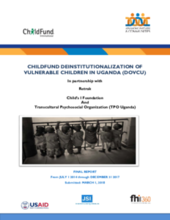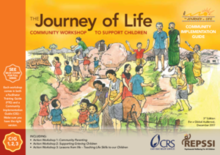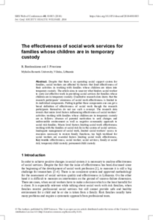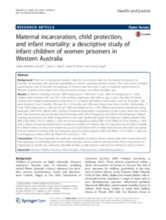Displaying 401 - 410 of 947
This final report on the “Deinstitutionalization of Vulnerable Children in Uganda” (DOVCU) project identifies its successes as well as some shortcomings and key learning that is directly relevant to other projects working to support family care for children.
The series is designed for communities wishing to support children in need and their caregivers. It includes a facilitator training guide and community implementation guide, as well as guides on protecting children from trafficking and abuse.
The article aims to uncover what hinders social workers to carry out effective work in providing social services for families whose children are in temporary custody.
The objective of this study was to assess the impact of ‘Parenting for Lifelong Health: Sinovuyo Teen’, a parenting programme for adolescents in low-income and middle-income countries, on abuse and parenting practices.
This paper discusses findings from a small-scale qualitative study conducted in Harare, Zimbabwe. Findings show that young people aging out from Harare’s care institutions face challenges making their transition from care into adulthood.
This study evaluates the ‘Nurturing Attachment’ program in the UK, a Dyadic Developmental Psychotherapy intervention for adoptive families.
This study draws on linked administrative data to describe the exposure of children aged less than 2 years to maternal imprisonment in Western Australia, their contact with child protection services, and infant mortality rates.
In this study, the authors examined the process of how relationships are built between Ethiopia adoptees and their adoptive families within the new family setting.
This paper presents findings from an 18-month randomized controlled trial in which intact families (N = 122) with at least one CPS report were provided with a facilitated connection to a paraprofessional evidence-based HV program or usual care services from child protection.
In this article from the Child Law Practice Today July/August 2017 Issue on Kinship Care, Los Angeles Judge Michael Nash, Ret. shares court and agency strategies to engage and support relatives for children and families involved in the child welfare system in the US.




